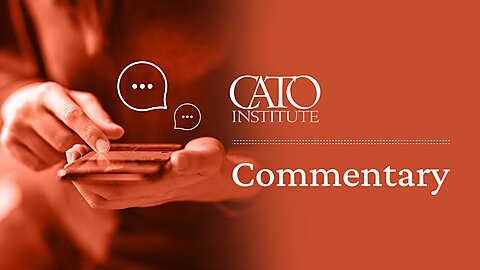Javier Milei’s unexpected victory in Argentina’s presidential run‐off is a remarkable feat.
Not only did Milei defeat Peronism’s formidable political machine while leading a new political party; he also convinced a majority of voters to choose a return to Argentina’s lost tradition of classical liberalism, with an overt emphasis on the unqualified respect for the fundamental rights of life, liberty, and property as the true source of prosperity.
Nonetheless, the time for glee will be short‐lived. Milei will become Argentina’s new president on December 10 with annual inflation levels above 140 percent, a practically worthless national currency, and 40 percent of the population living below the poverty line. The president elect seems aware, however, that the gravity of Argentina’s economic crisis leaves no time for half measures.
Implementing Milei’s economic program is Argentina’s only chance of defeating inflation, regaining monetary stability, and returning to economic growth. A free‐market economist, the president elect understands that price and currency controls must be done away with, as is the case with all taxes on exports. Milei has even suggested that he will get rid of Argentina’s barriers to global trade unilaterally, a radical and necessary volte‐face after eight decades of protectionist failure.
Most importantly, Milei plans to dollarize Argentina’s economy and shut down the central bank. Dollarization is the best available means to bring inflation down to single digits rapidly and permanently. Granting the dollar legal tender also protects citizens’ purchasing power by rendering the devaluation of a local currency vis‐à‐vis the dollar impossible.
Milei’s own party does not control Congress, although he will likely form a coalition with Juntos por el Cambio, a center‐right party. Even if he struggles to have all of his intended reforms approved by Congress, dollarization would be a magnificent achievement in and of itself.
As the experience of Panama, Ecuador, and El Salvador shows, dollarized countries in Latin America enjoy lower interest rates and longer loan periods for solvent private sector actors. Moreover, dollarization imposes a hard budget constraint on the local political class, thus providing an institutional curb on public spending that has been sorely lacking in Argentina.
Dollarization is no silver bullet; it guarantees neither high levels of economic growth nor sound fiscal management. Nonetheless, granting the dollar legal tender does tame inflation and provide price stability, thus ushering the basic conditions that Argentina’s next government needs to implement other, much‐needed supply‐side reforms.
If carried out successfully, Argentina’s dollarization can have consequences across Latin America. Since Panama, Ecuador, and El Salvador are relatively small countries, dollarization’s success in the region has been mostly overlooked. Argentina, however, is a large and influential country. A dollarized Argentina would create an enlarged, Latin American “dollar zone” that, informally, also includes Venezuela, a country that has become de facto dollarized. Besides bringing monetary stability, the common use of a hard currency also could boost intraregional trade, which has remained at minimum levels in Latin America (especially if compared to North America and the European Union).
The presidential campaign in Argentina acquired an international dimension as several of the region’s leftist leaders—among them Brazil’s Lula Da Silva and Colombia’s Gustavo Petro—blatantly intervened in Argentine politics by opposing Milei and supporting his opponent, Peronist finance minister Sergio Massa.
Given recent election victories for the Peronists’ hard leftist allies in Brazil, Chile, Colombia and other countries, today’s election in Argentina can be seen as a referendum on the future of Latin America itself. This makes Milei’s win even more significant.
















